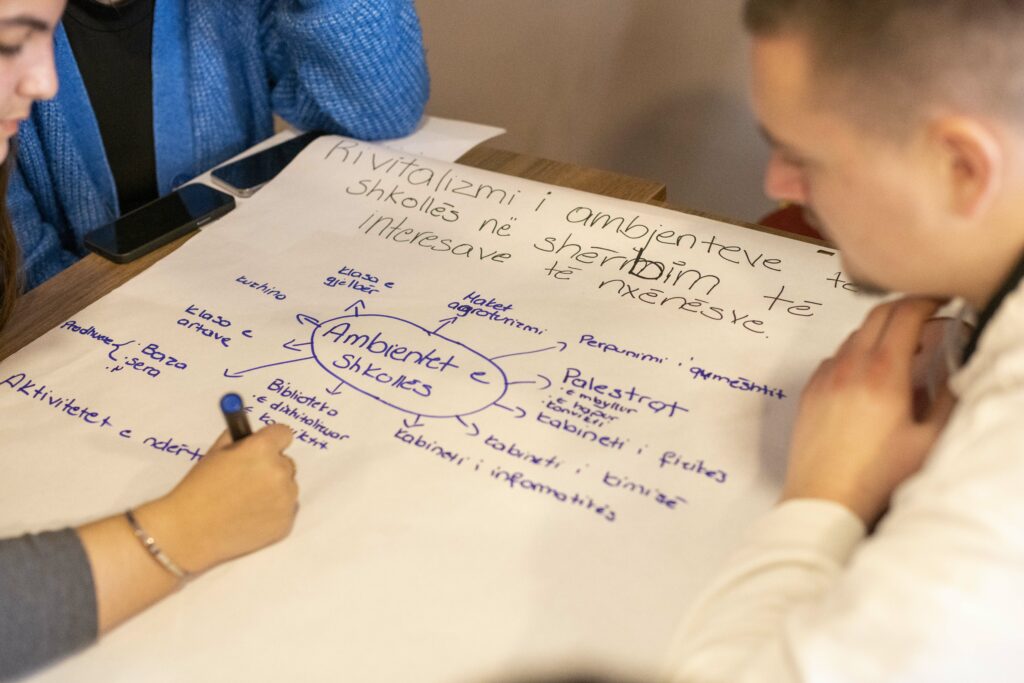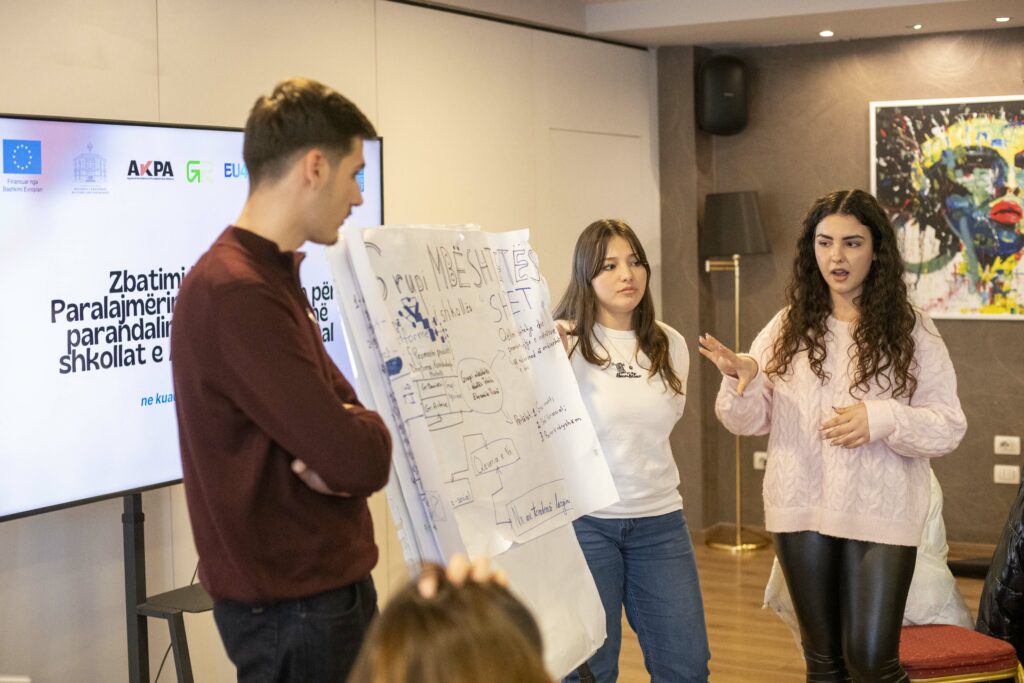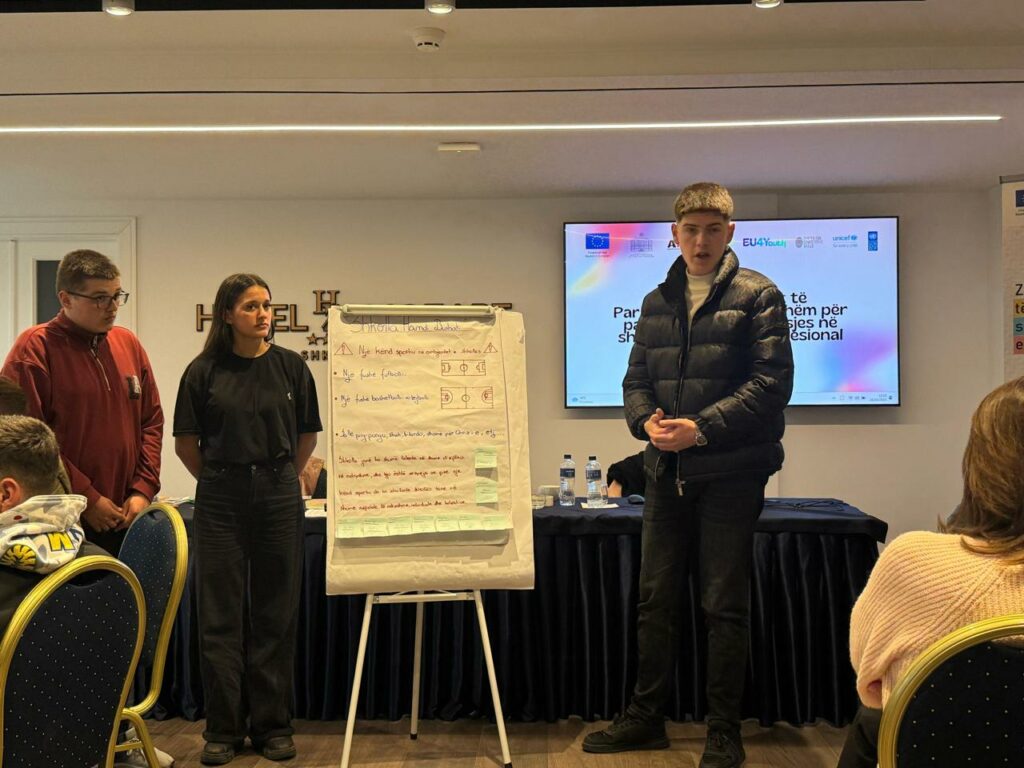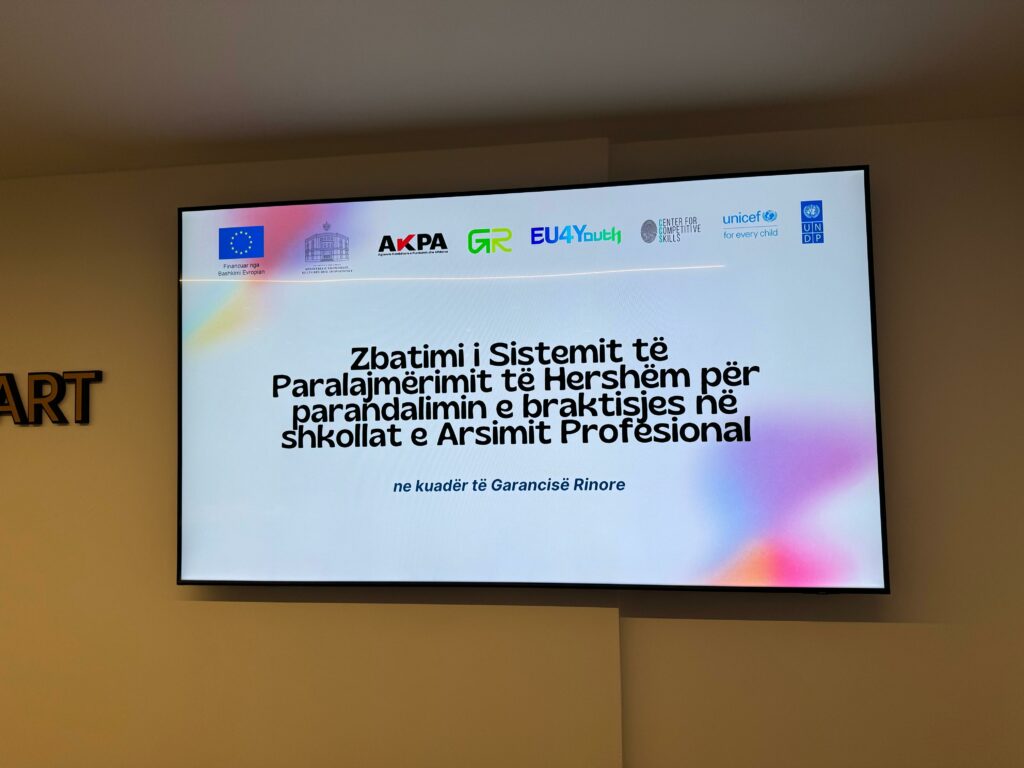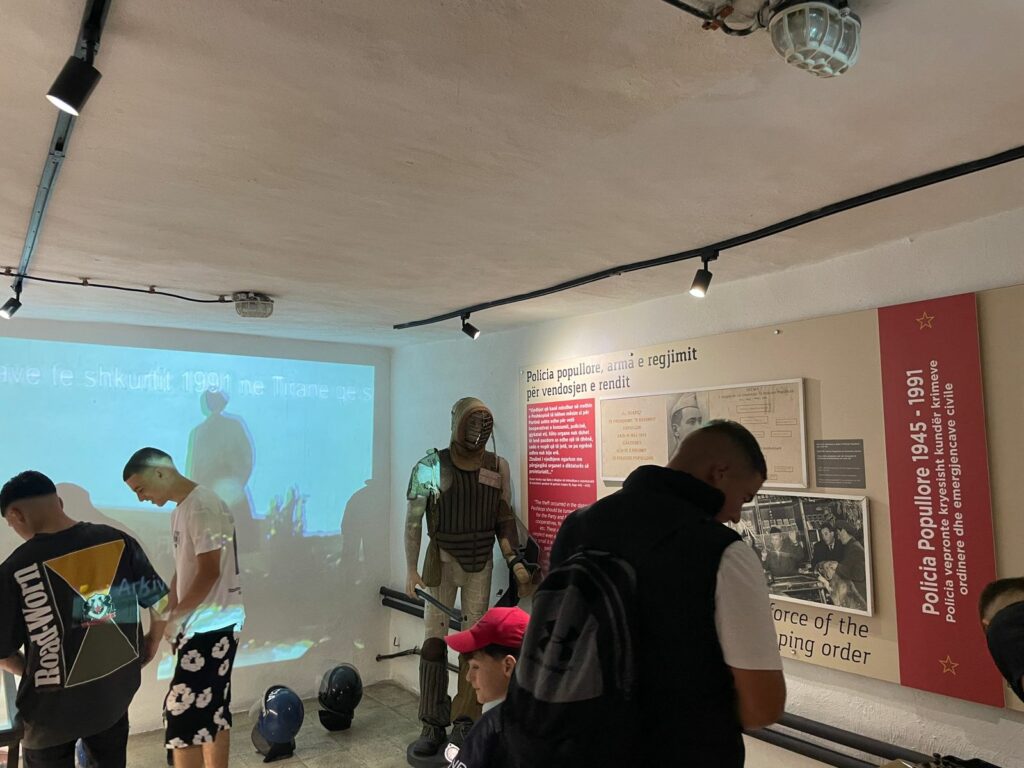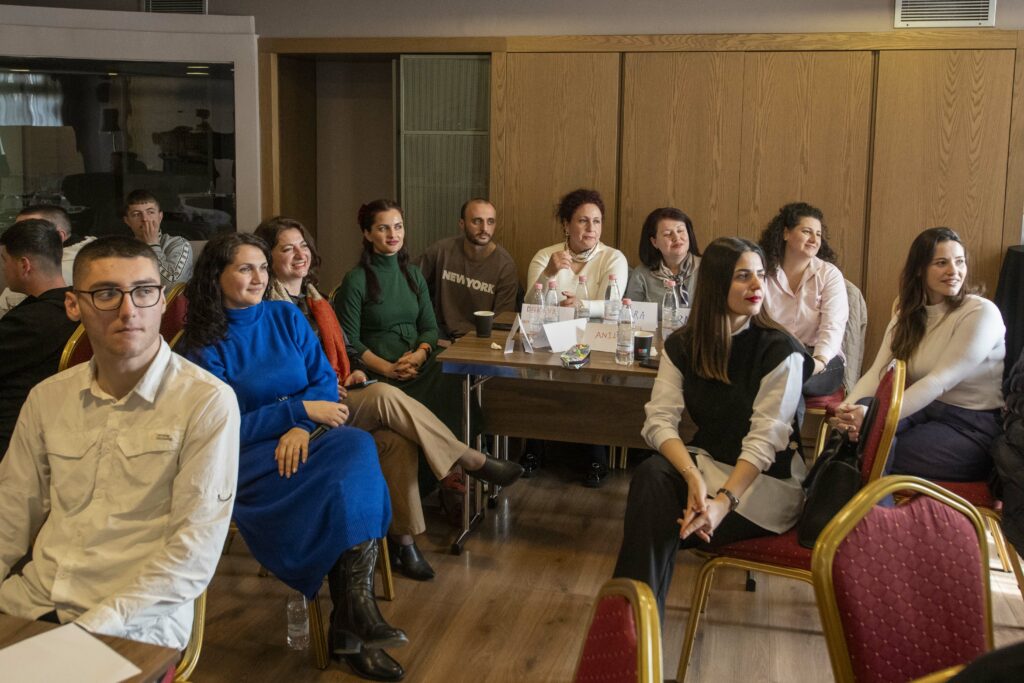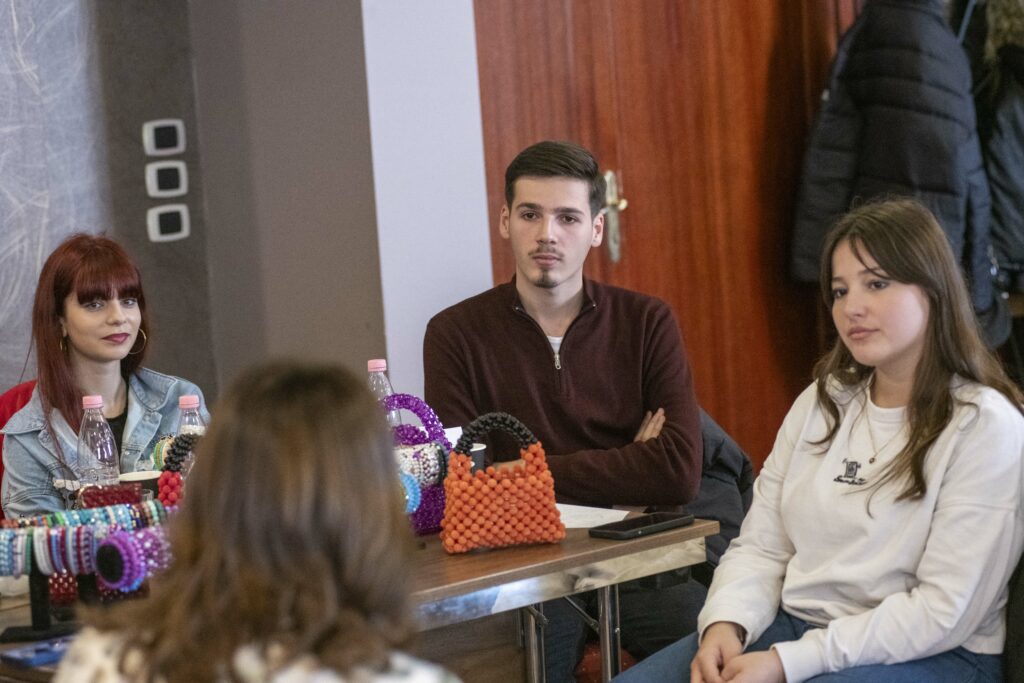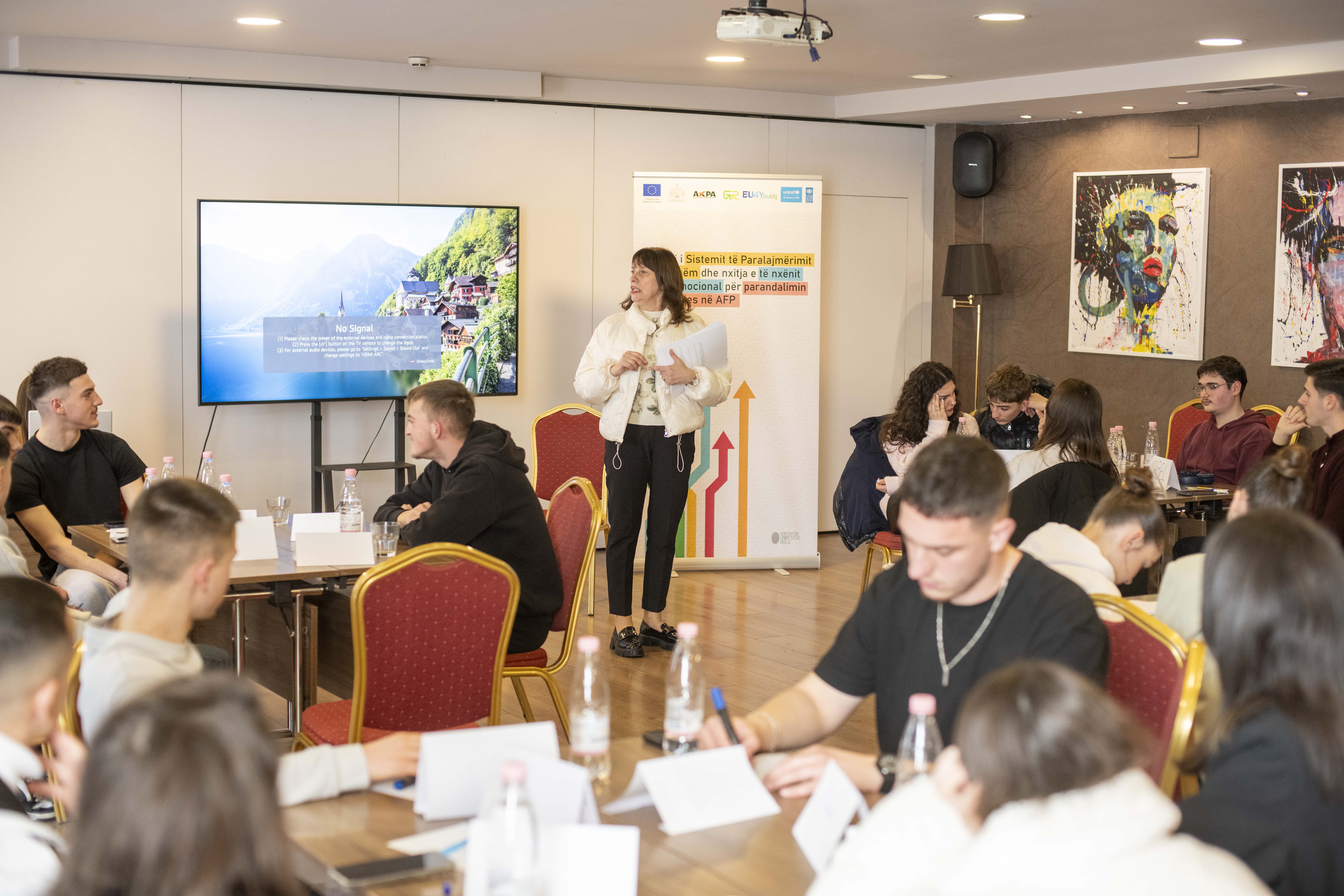
Funded by: UNICEF Albania
Implementation Period: 13/01/2025 – 15/04/2026
Regions: Tirana, Vlora, and Shkodra, Albania
In the second phase of the project, the Early Warning System (EWS) and Social Emotional Learning (SEL) programs will continue to be implemented in 12 vocational education and training schools in the regions of Tirana, Vlora, and Shkodra in Albania. This phase aims to consolidate and expand the results achieved in the first phase by sustainably reducing dropout rates and addressing challenges related to youth who are Not in Education, Employment, or Training (NEET).
The project will focus on building the capacities of teaching staff and support structures through advanced training and continuous mentoring on the implementation of EWS and SEL. The training of 250 teachers and education staff is planned and continuation of work to develop inclusive strategies to support students at risk, as well as to design individualized dropout prevention plans.
Another focus of the second phase is strengthening institutional ownership and sustainability of interventions through small grants to schools, for the implementation of community-based dropout prevention projects, grounded in the needs and ideas of the school communities.
The implementation of the Early Warning System and Social Emotional Learning programs strengthens schools’ capacities to identify and support students at risk by creating a more inclusive and supportive learning environment. This intervention responds to the need for a more sustainable vocational education system, closely linked to the needs of the labor market and society.
This project is implemented in close collaboration with key institutional actors such as the National Agency for Vocational Education and Training (NAVETQ) and the National Agency for Vocational Education (AKPA).
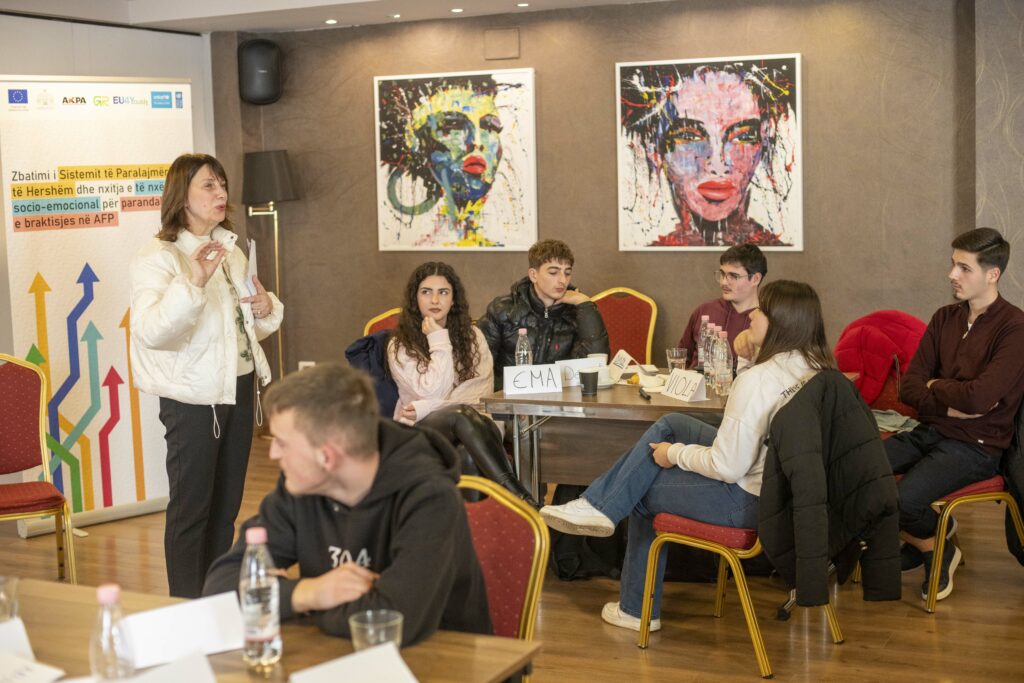
Expected Results:
Beneficiaries:
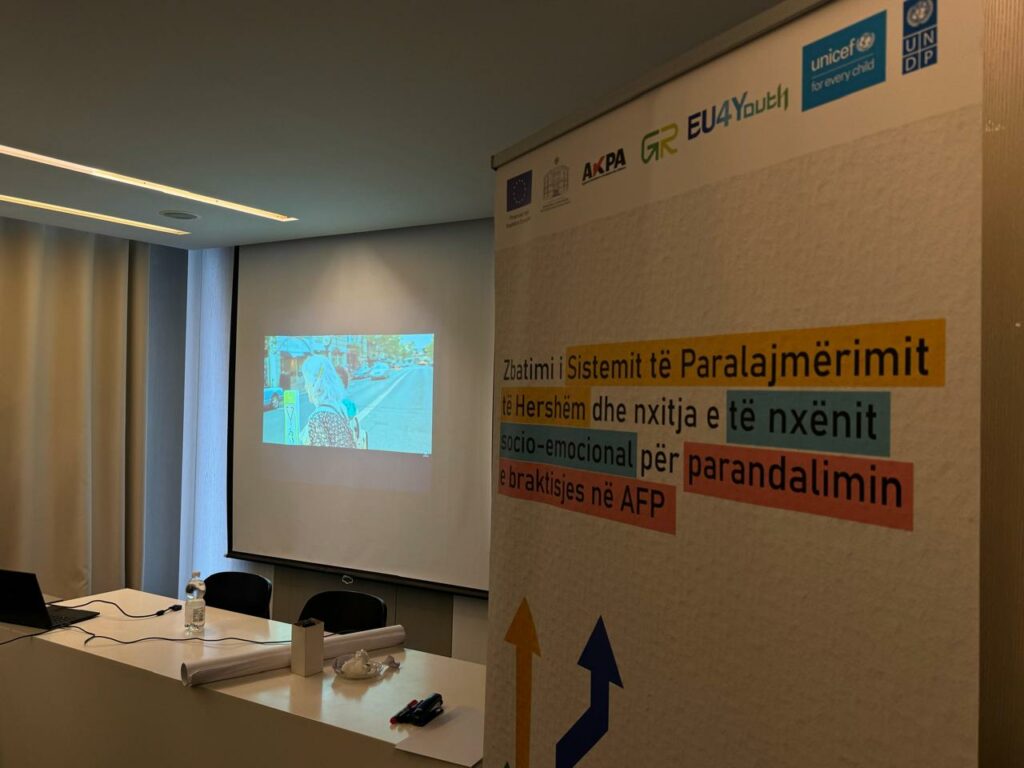

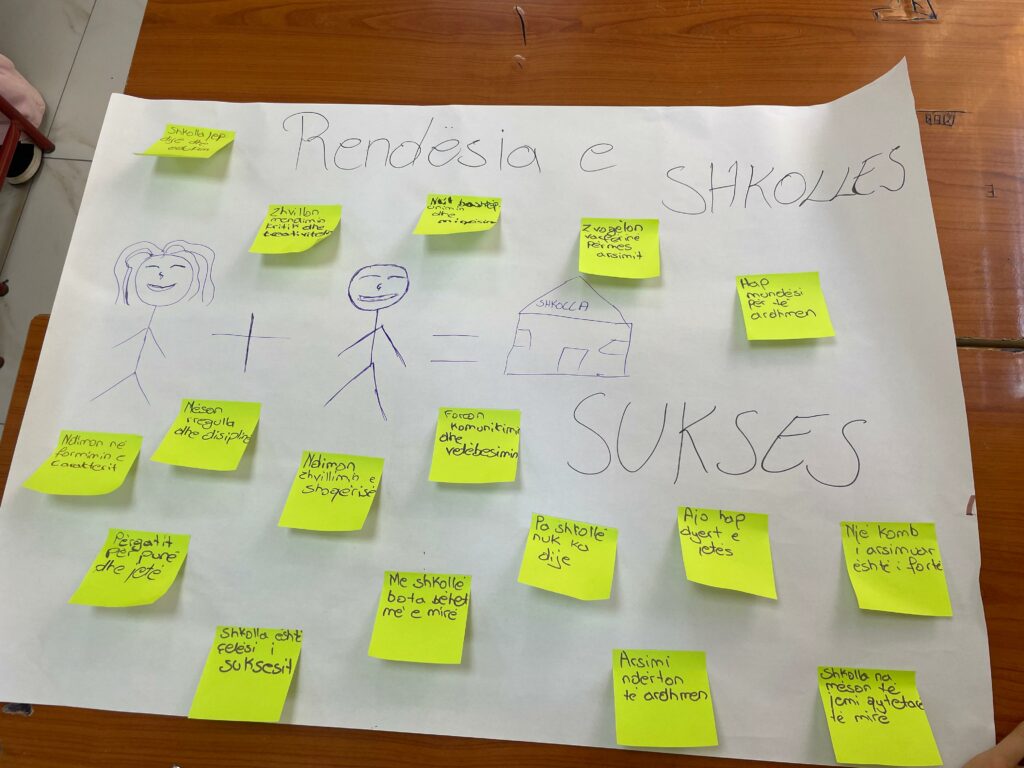

Documents developed to support the project:
Expected achievements:
